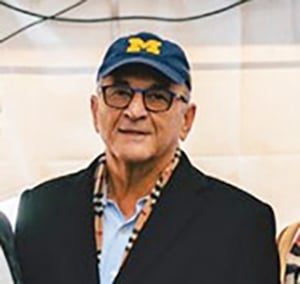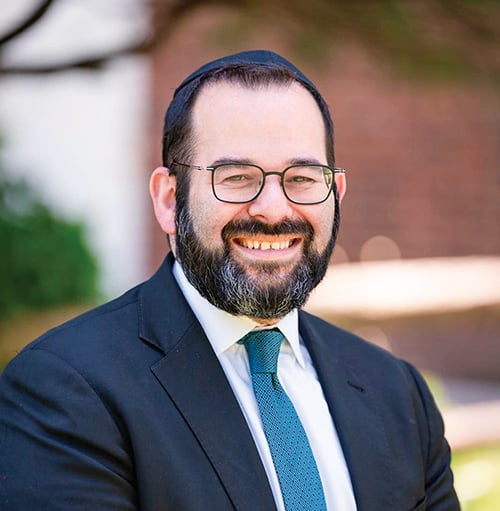Editor’s note: As we gratefully welcome our digital editor Channa Fischer back from maternity leave, we are thrilled to present what we hope will be her new regular column and therefore a new must-read feature in the paper.“Twenty Something” is Channa’s move toward speaking directly to those in her demographic, while also working toward finding relatable middle ground with Jews of all ages.
I often joke to myself that the “t” in “twenty” stands for “transition.” (Don’t ask me what the other letters stand for). Something about turning 20 sent me into a spiral of adjustments in my life. Moving to a new city. Picking a career. Learning how to live on my own. Dating. Making new friends. Getting married. For most of us in the Orthodox world, the majority of our 20s is spent getting used to life.
Though I’ve never been one for writing personal columns, I have recently discovered the importance of doing so. As it turns out, reading others’ experiences with big life changes helps you understand your own and explore different ways of coping. The idea was to share my recent experience in the hope that it may bring comfort to someone, or at least give a little perspective. While discussing this column with my editorial team, we thought: Why stop at just one experience? Why not explore all of life’s dilemmas that arise in your 20s?
So, welcome to “Twenty Something.”
Two months ago, my husband and I welcomed our first baby into this world. Sophia Ruth emerged a bright shade of purple on Wednesday, June 8, at nearly eight pounds. Transitioning from being responsible only for myself to being responsible for another human being is certainly an overwhelming experience. But what I came to realize as I began to adjust to life with little Sophie is that I had already learned to be responsible for others.
Thanks to my Jewish day school education, the phrase “Kol Yisrael areivim zeh bazeh,” that “all of Israel is responsible for one another,” is something that has appeared time and again. It’s a conclusion drawn in the Talmud (Shavuot 39a) on transgression and sin, often used to paint a rosy picture of Jews helping each other in times of need. But I never believed that to be true—yes, we value community, and yes, we stand up for our own kind in a broad sense—I just had never really experienced it firsthand.
It hit me while I was spending yet another middle-of-the-night feed scrolling Reddit on my phone. My entire pregnancy, Reddit became my little safe haven of other women who truly understood what I was going through. My favorite subreddit consisted of other women who had due dates in June, because at every stage in my transition to parenthood, I had a place where I could compare my experiences and gauge how “normal” I was feeling through it all. One by one, each of us in that group shared the stories of our births as they happened. Then came the trickle of new parenting woes: How much sleep is too much sleep for a newborn? What kind of diapers are you using? How are you coping with your new life?
The most striking posts in that group, though, were those about how these new moms were handling the transition itself. So many women posted desperately about the help they needed but couldn’t get—either because they were thousands of miles away from close family, or because their partners returned to work, or because they couldn’t afford to pay for help, or a combination of all three. They complained about all the new motherhood struggles, like being exhausted, unable to keep their homes clean, having nothing to eat and no one to cook for them. As I read each of these posts, I tried to relate.
I related to these posts in the sense that I, too, live thousands of miles from my family and that my husband also returned to work just a few days after Sophie was born. But I didn’t relate to the loneliness. I attempted to pinpoint exactly why it was that despite our shared struggles, the way I felt about it was different.
Turns out, it’s my community.
It all started before I gave birth; dozens of people at my shul and from around my neighborhood would say, quite seriously, “Let me know how I can help.” Though I’m not one for accepting offers like this, knowing that I had a backup team comforted me as I prepared for motherhood. Before we even arrived home from the hospital, friends and colleagues were asking us what we wanted to eat (for me, it was sushi) and when they could drop by. The visits thereafter were unimposing: a hot pan of food, a warm hello to the new baby and a genuine, “Is there anything I can do for you?” Soon enough, my heart and refrigerator were full.
In comparing my postpartum experience with those of my virtual friends on Reddit, I feel immediately and endlessly grateful. Not just for the people in my life who were so gracious and helpful to us in this transitional time, but also for the way we value our responsibilities toward each other. After years of trying to take care of others in the best way I could, others were taking care of me, well beyond what I would have expected.
The phrase “Kol Yisrael areivim zeh bazeh,” suddenly became important for this 20-something. And I couldn’t have adjusted to this new life without it.
Digital editor Channa Fischer is the token 20-something in the office. She lives in Washington Heights.













